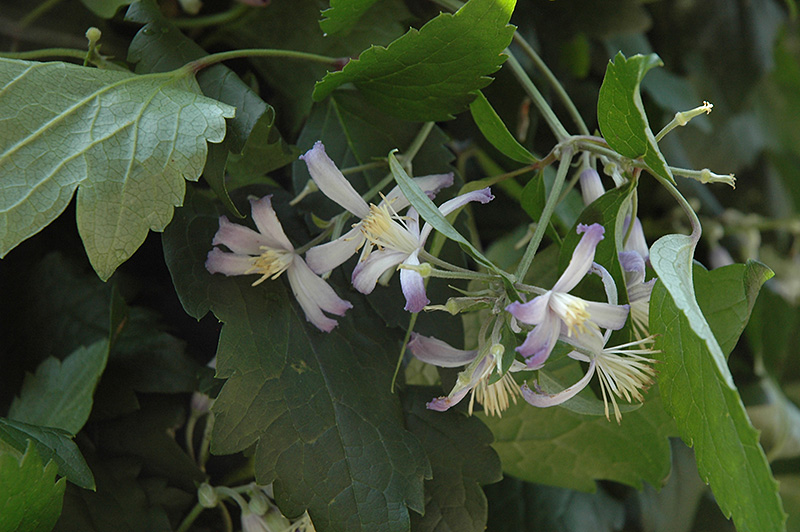>> Home
Praecox Clematis
Clematis x jouiniana 'Praecox'
Height: 24 inches
Spread: 3 feet
Sunlight:
![]()
![]()
Hardiness Zone: 3
Description:
One of the hardiest of all clematis and a vigorous grower, covered in small nodding white and blue flowers in late spring, a durable variety for the toughest situations; it also makes a great groundcover
Ornamental Features
Praecox Clematis features delicate fragrant nodding white star-shaped flowers with buttery yellow eyes and blue tips at the ends of the stems from mid to late spring. Its compound leaves remain green in color throughout the season.
Landscape Attributes
Praecox Clematis is an herbaceous perennial vine with a twining and trailing habit of growth. Its medium texture blends into the garden, but can always be balanced by a couple of finer or coarser plants for an effective composition.
This is a relatively low maintenance plant. It is a Type 1 clematis, meaning that it flowers on old wood of the previous season; other than trimming off obvious dieback in spring, it should only be pruned where necessary immediately after flowering. It is a good choice for attracting bees and hummingbirds to your yard. It has no significant negative characteristics.
Praecox Clematis is recommended for the following landscape applications;
- Accent
- Hedges/Screening
- General Garden Use
- Groundcover
Planting & Growing
Praecox Clematis will grow to be about 24 inches tall at maturity, with a spread of 3 feet. As a climbing vine, it should either be planted near a fence, trellis or other landscape structure where it can be trained to grow upwards on it, or allowed to trail off a retaining wall or slope. It grows at a medium rate, and under ideal conditions can be expected to live for approximately 20 years. As an herbaceous perennial, this plant will usually die back to the crown each winter, and will regrow from the base each spring. Be careful not to disturb the crown in late winter when it may not be readily seen!
This plant does best in full sun to partial shade. It does best in average to evenly moist conditions, but will not tolerate standing water. It is not particular as to soil type or pH. It is somewhat tolerant of urban pollution. Consider applying a thick mulch around the root zone in both summer and winter to conserve soil moisture and protect it in exposed locations or colder microclimates. This particular variety is an interspecific hybrid.
